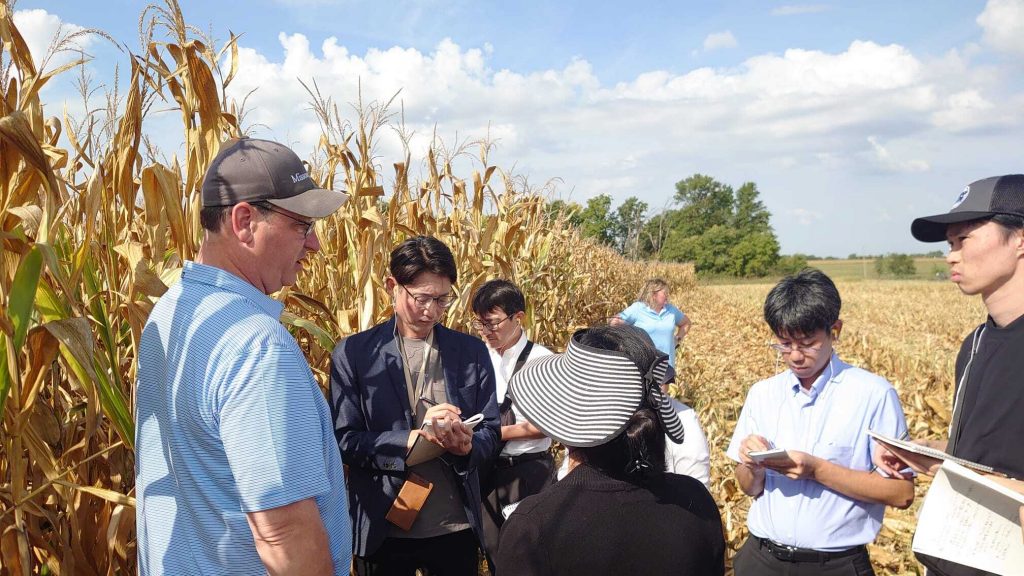Japan has long been a strong and dependable market for the U.S. agricultural industry, and the U.S. Grains Council (USGC) recently led a group of new Japanese feed grain purchasers on a tour of the U.S. corn value chain to ensure the partnership endures for decades to come.
“Although Japan is already a developed market for U.S. producers, we cannot be complacent in defending it from competitors and building relationships with purchasers and end-users that will pay dividends for future generations of U.S. farmers,” said Tommy Hamamoto, USGC director in Japan. “Furthering the education of this group of young industry stakeholders will aid their professional development while fostering trust and loyalty to U.S. products over the course of their careers.”
The program kicked off in New Orleans on Sept. 16 with a meeting at a grain elevator operated by the National Federation of Agricultural Cooperative Associations (Zennoh). Zennoh is the marketing and supply arm of the Japan Agricultural Cooperatives Group (JA), that allows participants to immediately understand the deep connection between the U.S. and Japanese agricultural industries.
Later that day, the group attended a river boat tour organized by Blue Water Shipping Company to see how U.S. feed grains travel all the way from domestic farms to customers worldwide.
The team then flew to Missouri to visit a corn farm owned by Missouri Corn Merchandising Council Board Member Brian Willott and tour a bioprocessing facility owned by POET, a Council member and world’s largest producer of biofuels. The visits showed participants how a typical U.S. farm operates and how ethanol plants harness corn to produce ethanol and co-products like distiller’s dried grains with solubles (DDGS) and corn fermented protein (CFP) that can greatly enhance animal feed diets.
Next, the group toured Melin Price Lock and Dam in Alton, IL, a pivotal point for corn, soybean and other feed grain transports on the Mississippi River. Afterwards, the team visited an ADM river terminal. ADM is a Council member and a world leader in human and animal nutrition.
Lastly, attendees met with representatives from TransGlobe, a Council member and agricultural exporter serving 36 countries around the world.
“Participants were eager to learn about the production of U.S. corn and its co-products, and how quality is preserved throughout the shipping process,” Hamamoto said. “It’s impossible to understate the importance of buyers seeing their product firsthand and knowing exactly what they will receive when they return to Japan, and this experience will stay with them for years and years into the future.”
Learn more about the Council’s work in Japan here.
About The U.S. Grains Council
The U.S. Grains Council develops export markets for U.S. barley, corn, sorghum and related products including distiller’s dried grains with solubles (DDGS) and ethanol. With full-time presence in 28 locations, the Council operates programs in more than 50 countries and the European Union. The Council believes exports are vital to global economic development and to U.S. agriculture’s profitability. Detailed information about the Council and its programs is online at www.grains.org.

